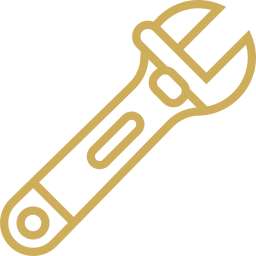Modern cars are progressively pre-loaded with new technologies, apart from the comfort of use it can bring, technology also has the advantage of saving fuel or reducing the pollution emitted by our cars. This is precisely the subject of our content of the day, we are going to look at the problems of the lambda sensor on Volkswagen Jetta , this sensor also known as oxygen sensor plays an important purpose. To find out, first, we are going to identify what a lambda probe is employed for, then, what are the lambda sensor problems on Volkswagen Jetta and how to resolve them.

What is a lambda role on Volkswagen Jetta?
So we begin our content page with the interest of a lambda sensor on Volkswagen Jetta , we will first discover what is the function of this probe and then how it works.
Role of a lambda sensor on Volkswagen Jetta
First created by Volvo in the 1970s, it began to appear on our cars in the 1990s with the first EURO 1 emission requirements. As well called oxygen sensor on Volkswagen Jetta , its goal is to regulate the amount of oxygen in the exhaust gases, this will enable the engine to adapt the air/fuel mixture to lower the pollution emitted by the car and reduce the car’s fuel consumption.
Lambda sensor process on Volkswagen Jetta
Before describing you the different problems of lambda probe on Volkswagen Jetta , we will look a little more in outline at its working to allow you to figure out exactly how it works and thus to consider more serenely the correction of a problem associated with it.
As we informed you, a lambda probe has the task of managing the amount of oxygen present in the exhaust gases . One could naively believe that this data is measured upstream of the combustion but it is on the contrary measured at the engine outlet . With the EURO 1 standard there was only one lambda sensor required before the catalyst, but with the arrival of more drastic requirements there are now 2 lambda sensors, one before and one after the catalyst . The interest is to have more exact data by compiling the two probes. These data are sent to the ECU which will adapt the quantity of air and gasoline inserted into the engine to optimize the combustion .
Lambda sensor issue on Volkswagen Jetta
.
At last, we are now going to attack the section you are undoubtedly most enthusiastic about this content page, how to proceed if you have a lambda sensor issue on Volkswagen Jetta . In a first step we will find out how to locate a lambda sensor HS and in a second step how to replace it.
How to know if a lambda sensor on Volkswagen Jetta is HS
.
It is important to know that a lambda sensor has generally speaking a lifetime of 150 000 km , this info can fluctuate according to the year of your Volkswagen Jetta, your driving, and the good working of your engine. A poorly maintained engine that produces unburned gases may completely damaged your lambda sensor. One of the clues that can notify you of a defective lambda sensor on Volkswagen Jetta may be the engine light comes on, if you want to turn off the engine light of your Volkswagen Jetta, do not think twice to consult our dedicated content page to discover the procedure to follow. The only effective method to be sure that you have a lambda sensor issue on your Volkswagen Jetta and to pass your car to the diagnostic case, for that do not think twice to consult our tutorial which explains you Volkswagen Jettahow to read the fault code of a Volkswagen Jetta. Please be aware that if you have problems with one of your lambda sensors, the only remedy to solve them will be to replace the defective sensor.
How to replace a lambda sensor on Volkswagen Jetta?
And at last, we are going to concentrate on the correction of lambda sensor problems on Volkswagen Jetta , by detailing how to replace a lambda sensor.
The replacement of a lambda sensor is quite simple to execute and you will have the ability to do it yourself with a minimal of tools and mechanical knowledge. A lambda sensor is worth between 25 and 50€ , it is better to replace the 2 lambda sensors present upstream and downstream of your catalytic converter because if one of them is defective the second one risks to drop you fairly quickly. To replace it, it will be necessary to put your Volkswagen Jetta on candles and at the level of your catalyst unscrew your probes, disconnect them, reconnect them and screw the new ones . Once re-connected, you should not have any more problems with your lambda sensor on Volkswagen Jetta.
If you want more tutorials on the Volkswagen Jetta, go to our Volkswagen Jetta category.

